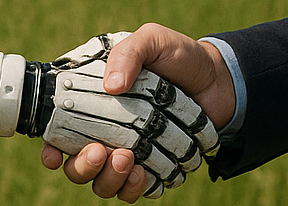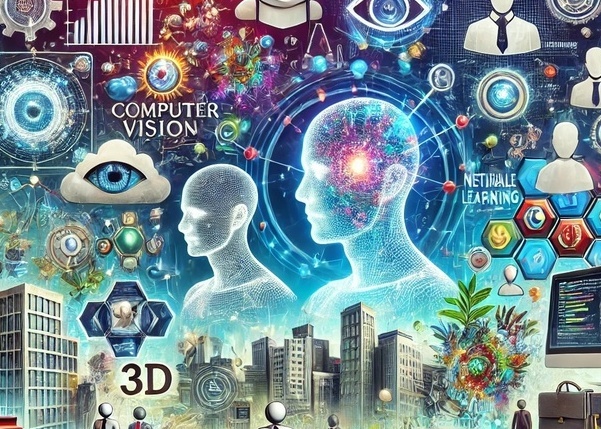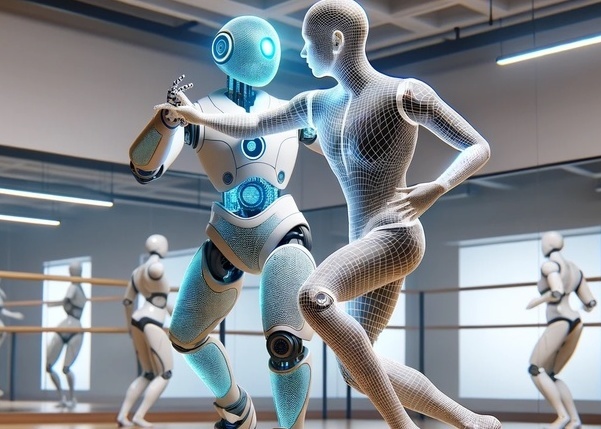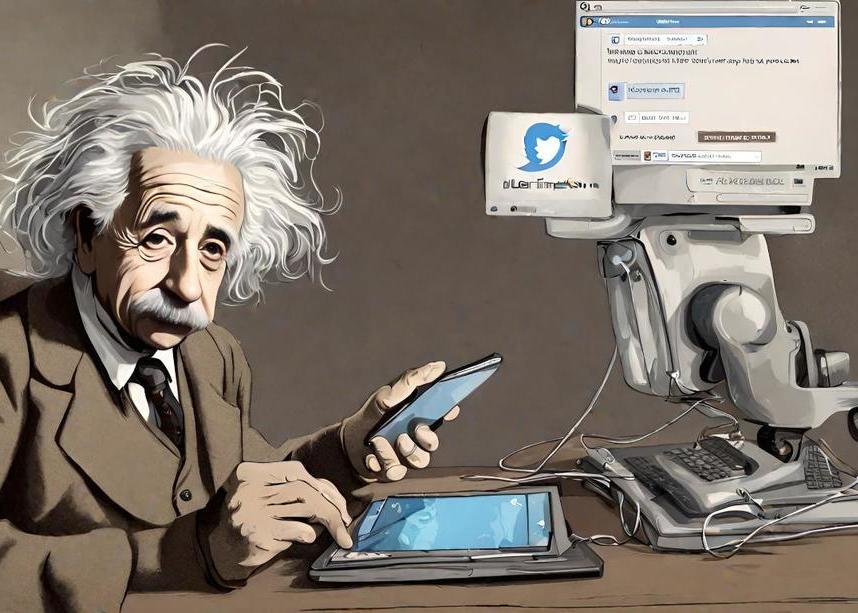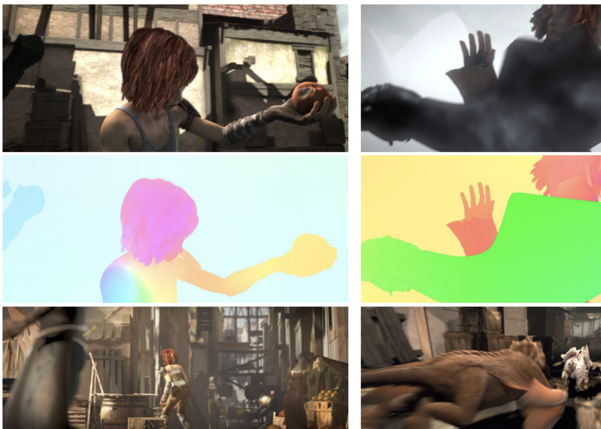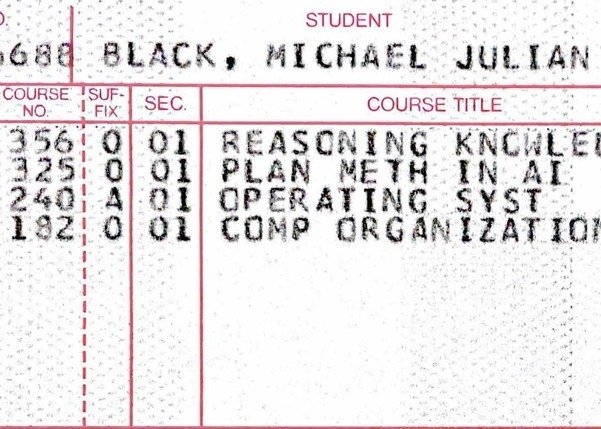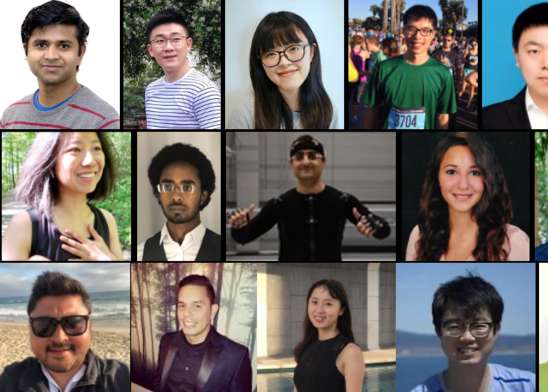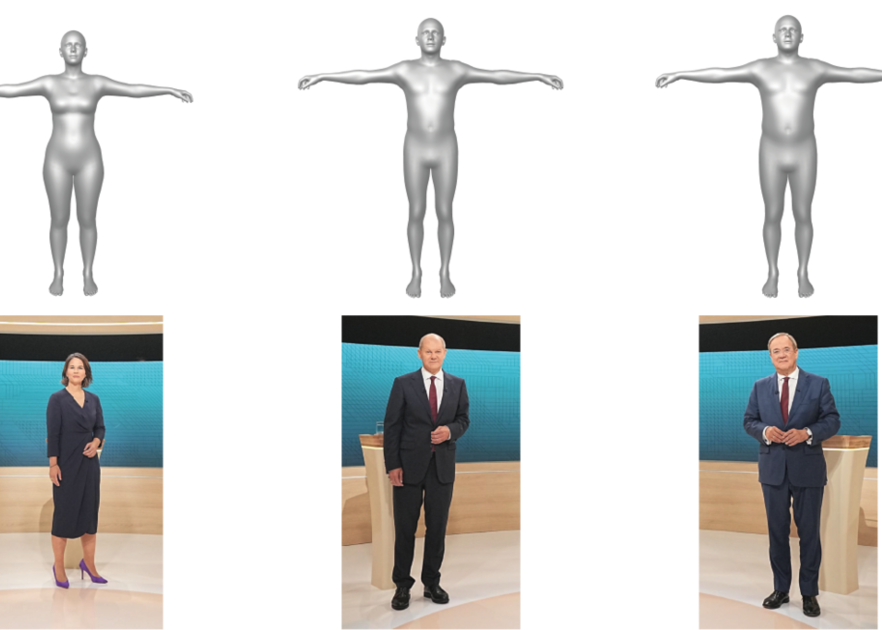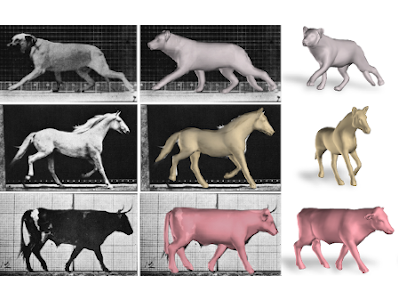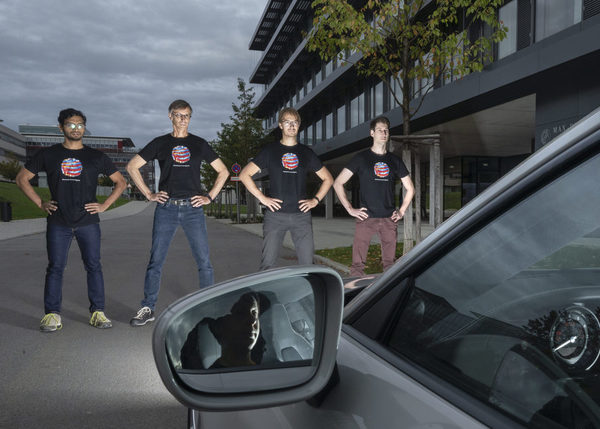We view computer vision as the process of inferring the causes behind the images that we observe; that is, we want to infer the story behind the picture. The most interesting stories involve people. Consequently, our research focuses on understanding humans and their interactions with each other and with the 3D world.
Here, members of the Perceiving Systems Department write about their research.
Physical Intelligence for Humanist Robots
30 June 2025 Michael J. Black 8 minute read
The AI tariff?
The societies that will "win" the AI race will not be those that develop the technology first. It will be those that are best able to manage the long-term social disruption AI will cause.
09 April 2025 Michael J. Black 3 minute read
MoSh: Motion and Shape Capture in the Age of AI
Test-of-Time Award Winner, SIGGRAPH Asia 2024
03 December 2024 9 minute read
Writing a good scientific paper
08 November 2024 Michael J. Black 33 minute read
Good-enough AI and the commoditization of intelligence
16 July 2024 3 minute read
Ask me anything -- July 2024
Conversations on X about vision and careers
16 July 2024 Michael J. Black 14 minute read
The Fallacy of the Perfect Career Path
Maximize impact by maximizing fun
27 April 2024 Michael J. Black 2 minute read
Startup Research: Oxymoron or Key to Success?
Should AI startups do research?
26 April 2024 Michael J. Black 7 minute read
Build what you need and use what you build
An approach to impactful science
21 April 2024 Michael J. Black 3 minute read
Scientific communication in the age of influencers
28 January 2024 4 minute read
Third wave 3D human pose and shape estimation
Beyond 3D to understanding humans
04 December 2023 7 minute read
Redefining plagiarism in the age of AI
Adapting the ethics of scientific publication to address large language models
10 December 2022 6 minute read
Peer Review, Plagiarism, and Authorship in the Age of Large Language Models
How do we retain public trust in science when it becomes easy to cheat?
01 November 2022 4 minute read
From cartoons to science: The Sintel dataset at 10 years
The Koenderink Prize at ECCV 2022.
The Sintel optical flow dataset appeared at ECCV 2012 and at ECCV 2022 it was awarded the Koenderink Prize for work that has stood the test of time. What makes a paper stand the test of time? What makes a good dataset? What made Sintel special?
25 October 2022 10 minute read
The Road to Success is Paved with Rejection Letters
My other CV. The CV of failures.
Let's get this out of the way up front. I'm a successful academic. I have one of the best jobs in academia (Max Planck director). I've been able to do work that I care about, with great colleagues and students, and it's been recognized by my community. I'm white, male, and st...
07 February 2022 Michael J. Black 7 minute read
Novelty in Science
A guide for reviewers
Reviewers have strong ideas about what makes a paper acceptable in top conferences like CVPR. They know that getting into such conferences is hard and that getting a paper in is prestigious. So, the papers that get in must be really special. This is true, but what makes a pap...
30 January 2022 Michael J. Black 5 minute read
Creating digital humans: Capture, Modeling, and Synthesis
ICCV 2021 papers in context
18 October 2021 Michael J. Black 16 minute read
Reflections on ICCV over 31 years
Computer vision from 1990 to 2021
14 October 2021 Michael J. Black 8 minute read
Could body shape determine the German election?
Our perception of leadership traits is influenced by body shape
Could biases in how we perceive body shapes influence the outcome of the German election? Using recent work from our group, we investigate which of the chancellor candidates is perceived to be a good leader, solely based on their body shape.
05 September 2021 Michael J. Black, Lea Müller 5 minute read
Modeling the 3D shape of animals
The SMAL animal model
We describe our work for modeling animal shape. This is joint work with Angjoo Kanazawa and Michael J. Black.
12 October 2020 Silvia Zuffi 5 minute read
The Secrets of the Secrets of Optical Flow
The following paper was awarded the Longuet-Higgins Prize at the 2020 IEEE Conference on Computer Vision and Pattern Recognition (CVPR). The prize is given annually by the IEEE Pattern Analysis and Machine Intelligence (PAMI) Technical Committee for "Contributions in Computer ...
02 June 2020 Michael J. Black 6 minute read
The Road to Safe Self-driving
Optical flow prediction systems in autonomous cars.
A simple color patch could severely affect the optical flow prediction systems in autonomous cars
01 December 2019 Anurag Ranjan 5 minute read
The Perceiving Systems Department is a leading Computer Vision group in Germany.
We are part of the Max Planck Institute for Intelligent Systems in Tübingen — the heart of Cyber Valley.
We use Machine Learning to train computers to recover human behavior in fine detail, including face and hand movement. We also recover the 3D structure of the world, its motion, and the objects in it to understand how humans interact with 3D scenes.
By capturing human motion, and modeling behavior, we contibute realistic avatars to Computer Graphics.
To have an impact beyond academia we develop applications in medicine and psychology, spin off companies, and license technology. We make most of our code and data available to the research community.
